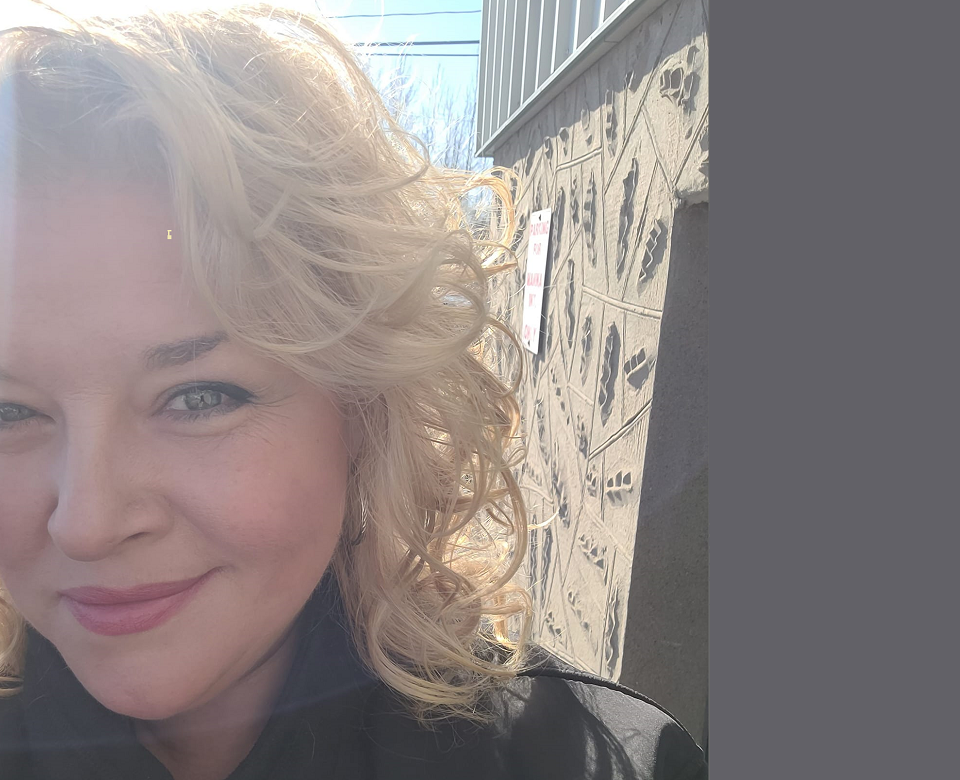Heidi Ivany was a server at Leoni’s Italian Kitchen in Toronto when she first took interest in learning improv.
“Leoni’s was the restaurant located in the building that The Second City Toronto was housed," says Ivany.
The Second City is a world-renowned comedy club, theater, and school of improvisation that has had an unprecedented impact on pop culture and the world of comedy.
With locations in Toronto, Chicago and Hollywood, some of comedy’s biggest stars got their start there, including Dan Aykroyd, John Candy, Martin Short, Mike Myers, Gilda Radner, Eugene Levy, and Catherine O’Hara.
Additionally, one of the first Second City mainstream breakthroughs was the popular SCTV (short for Second City Television), the sketch comedy show that ran between 1976 and 1984, airing on NBC from 1981 to 1983 on.
Created by Toronto’s Second City Troupe, the show's premise focused on the broadcast day of a fictitious television station in the town of Melonville.
For many Canadians, the show was their first taste of improv comedy.
“In terms of influence, I would have to cite SCTV and their group of brilliant performers, most of whom came through The Second City,” says Ivany, who notes that the television show was long over by the time she was working in the same building as the theatre troupe.
Ivany is also a fan of sketch comedy troupe Kids in the Hall.
“They were at their peak when I was in high school and I still find their old material as well as the reboot hilarious,” says Ivany.
Kids in the Hall cast members Kevin McDonald and Scott Thompson performed with The Second City touring troupe.
“I used to love to watch The Second City live performances and the sketches that had been developed through improvisation on the big stage,” she says.
“The performers would then do an improv set after each show.”
She cites Colin Mochrie, Ryan Stiles, and Wayne Brady as “improv giants” in the field.
“They are amazing in my eyes,” she says.
“At that time, I was equally fascinated and horrified by the thought of unscripted performance, but as a result of my personal circumstances decided to challenge my fear.”
Ivany took the leap and enrolled at The Second City herself.
“The training program was roughly two years in duration,” she says.
“Once I completed the first level, I then had to audition to get into the second level known as ‘Conservatory.’”
For those two years, the impact of working with improv professionals and sharing the stage with her peers in the program, has been lasting.
“It has come to be a part of my skill set and presentation style,” she says.
“Improv is the ultimate communications tool. It allows a person to always be able to respond effectively in a variety of scenarios, both personal and professional. You are endlessly capable of delivering on the spot and in the moment.”
Anyone who has met Ivany can attest to her acerbic and spontaneous wit.
Ivany eventually moved back to the Sault and made it her home.
She has previously shared some of her improv knowledge and skills with the community through workshops over the years.
“I have run workshops both here in the Sault, as well as in Toronto,” she says.
She notes that The Second City Toronto also had an education program that was being brought into schools, from grades kindergarten through to Grade 12, which she participated in.
“It is always an amazing experience to work with children and youth, to see them find their voice and see the growth of self-confidence,” she says, noting that she will be delivering a pop-up workshop for a class in the Algoma District School Board in May and hopes to do more for other schools in the future.
“It is a very powerful tool in increasing communication levels, particularly now in this digital age where the art of the spoken word is no longer at the forefront of interaction.”
Ivany will also be facilitating a six-week 'Intro to Improv Workshop' that begins later this week and runs through mid-May.
“Improv classes have a very broad range in terms of appeal, attracting people from all walks of life and professions,” she says.
“I will always argue that its application is universal as the skills incorporate themselves into the individual. It has the capacity to increase an individual’s efficacy in any arena whether performance-related, including comedy and drama, through to professional platforms across any sector. It is an extremely valuable communication tool and certainly would build on a person’s team-building capacity.”
Ivany notes that improv really highlights the importance of saying “Yes, and…” to ideas. This suggests that an improviser should accept what another improviser has stated by saying 'yes' and then expanding on that line of thinking moving towards the creation of a scene.
“This means that any idea that comes to you is an offer for you to accept it and work with it,” she says.
“The goal of improv is not about self. Within the context of the scenes and exercises, your overall goal is to ensure that your partners in the scene are always supported and always look good."
When asked what participants in the upcoming improv workshop can expect, she gives an evil laugh and says that she can’t give away her secrets.
“I will say that people who attend can expect a supportive, fun and informative experience,” says Ivany.
“I am there to instruct content and help form understanding of the basic concepts, as well as to facilitate fun and create a learning and supportive environment through congenial group dynamics. It has something for everyone. If you are curious, you should absolutely come in and try it out.”
The 'Intro to Improv' event takes place from April 6 to May 11 at the Sault Theatre Workshop.
Find out more or register here. Limited seats are available.
